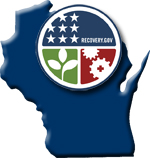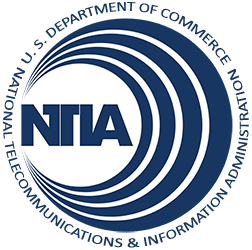In recognition of the importance of computer access in public spaces, the City of Milwaukee proposes to enhance broadband capacity and availability at libraries, public housing sites, and a senior center. The Connecting Milwaukee Communities project intends to reach economically vulnerable populations, such as at-risk children, seniors, Spanish speakers, and low-income families by focusing its efforts on areas in the city with higher poverty and unemployment rates. Upgraded centers will provide opportunities for underserved residents to connect with the full benefits of broadband access, including computer training, online education, job skill development, personal money management skills, and access to online health information. The project also plans to deploy self-serve broadband kiosks in targeted housing projects and provide a one-stop website for users to obtain information about public computer center classes and locations, online courses, and other relevant community information.
Wisconsin

| Grantee | Total Award | Type |
|---|---|---|
| City of Milwaukee | $2,479,742 | Public Computer Centers |
| College of Menominee Nation | $3,355,956 | Public Computer Centers |
| Communication Service for the Deaf, Inc. | $14,988,657 | Sustainable Adoption |
| Merit Network, Inc. | $69,639,291 | Infrastructure |
| One Economy Corporation | $28,519,482 | Sustainable Adoption |
| Public Service Commission of Wisconsin | $4,540,152 | Broadband Data & Development |
| State of Wisconsin Department of Administration | $22,978,367 | Infrastructure |
| The Board of Regents of the University of Wisconsin System | $5,106,373 | Infrastructure |
| University Corporation for Advanced Internet Development | $62,540,162 | Infrastructure |
| University of Wisconsin - Extension Service UWEX | $29,884,914 | Infrastructure |
| University of Wisconsin System SBA | $2,390,414 | Sustainable Adoption |
The College of Menominee Nation, located in one of Wisconsin’s more rural and economically disadvantaged areas, plans to upgrade and expand public computer services for the Menominee Indian tribe of Wisconsin as well as the broader public in the region through its Comprehensive Community Technology Center project. The project plans to upgrade speed and capacity primarily to serve the more than 5,000 members of the Menominee Tribe living on or adjacent to the 365 square mile reservation. The project proposes to provide certificate and/or technical diploma training, skills-building activities ranging from GED assistance to math and reading coaching, career exploration and placement, and special workshops for economically vulnerable populations including people with disabilities, at-risk youth, tribal populations, and the unemployed.
Broadband’s ability to expand educational and employment opportunities is especially meaningful for Americans who are deaf or hard of hearing, a community that faces unique challenges in education and that suffers from a rate of unemployment much higher than the national average. Communication Service for the Deaf, Inc. (CSD) intends to expand broadband adoption among people who are deaf and hard of hearing and provide them with online tools to more fully participate in the digital economy. The project proposes to employ a combination of discounted broadband service and specialized computers, technology training from an online state-of-the art support center customized to the community’s needs, public access to videophones at anchor institutions from coast to coast, and a nationwide outreach initiative. Thousands will gain online access to all the Internet has to offer, including sign language interpreters, captioned video services, and other content and functionalities designed especially to advance their educational, employment, and healthcare interests.
Community anchor institutions in rural northern Michigan often face high costs and/or limited Internet technology options, resulting in inadequate service for organizations in this economically distressed region. Merit Network proposes to address this problem by constructing a 1,210-mile fiber network offering speeds between 100 Mbps and 10 Gbps in Michigan’s Upper Peninsula and Lower Northern Peninsula, with additional connections to research and educational networks in Green Bay, Wisconsin and Duluth, Minnesota. Merit, whose existing network serves many of Michigan’s government, public safety, and health care organizations, plans to connect 61 anchor institutions, including public universities, community colleges, K-12 schools, libraries, health research institutions, Michigan’s Next Generation 911 system, and various local governments.
The 21st Century Information and Support Ecosystem project proposes to implement a comprehensive program of computer training, wireless Internet access, broadband awareness marketing, and online content and applications to residents of 159 affordable and public housing developments and low-income communities in 50 cities and towns across 31 states and the District of Columbia. The project plans to implement four principal programs: training 2,500 youth to become “Digital Connectors” who will then provide digital literacy training to others in their communities; deploying localized broadband networks in public housing developments; developing online content and applications aimed at low-income, low-literacy audiences.
Project Components
State Broadband Capacity Building:
This project will establish a statewide broadband office to coordinate state broadband activities and secure additional resources to assist regional planning teams as they fulfill their broadband outreach agendas.
Technical Assistance:
This program will develop and conduct a broadband education series that is linked to the greater statewide mapping initiative. PSCW will conduct regional and statewide events, accessible webinars, and other educational opportunities for community leaders, broadband advocates, and institutions. These events will focus on broadband policy, technology, and developments and will deepen the knowledge base of broadband advocates in Wisconsin. The technical assistance program will provide background and knowledge for regional strategic planning efforts.
Data Collection, Integration, and Validation:
This project was originally funded for broadband planning activities and two years of data collection. In September of 2010, this project was amended to extend data collection activities for an additional three years and to identify and implement best practices
Address File Development:
The Wisconsin Land Information Program (WLIP) was formed to meet the parcel data needs of state agencies, regional planning commissions, emergency managers, tribal agencies and other stakeholders. SBDD funding will support WLIP’s design, development, integration, testing, outreach, support, and data production necessary for securing statewide parcel and address data.
Wisconsin’s Education and Library Broadband Infrastructure Buildout project proposes to directly connect 385 libraries, 74 school districts, and eight community colleges (including two tribal colleges) to the existing high-speed BadgerNet Converged Network by deploying 203 miles of new fiber-optic facilities to replace inadequate copper infrastructure in predominantly rural areas. The BadgerNet Converged Network is the largest state network of its kind in the United States and currently provides connectivity to more than 2,300 state and local government agencies, schools, libraries, and healthcare facilities. The additional fiber connections are expected to upgrade 17 percent of the state’s schools and 81 percent of the state’s libraries to broadband speeds of between 20 Mbps and 100 Mbps, strengthening their ability to serve underserved communities throughout the state.
The Metropolitan Unified Fiber Network project plans to deploy more than 100 miles of fiber-optic middle mile infrastructure to provide high-capacity broadband Internet connections for underserved community anchor institutions, and enable last-mile broadband services throughout the Madison, Middleton, and Monona, Wisconsin region. The project expects to directly connect nearly 100 community anchor institutions, including schools, public safety organizations, and a community college, at speeds of up to 10 Gbps. The project also expects to spur new or improved broadband Internet access for local residents and businesses, including as many as 47,000 households and 5,000 businesses, by enabling last mile service providers to connect to the project’s open network.
As part of a longstanding project to connect essential community anchor institutions across the country, and facilitate closer collaboration and long-term benefits for education, research, healthcare, public safety, and government services, the University Corporation for Advanced Internet Development (UCAID) proposes a comprehensive 50-state network benefitting approximately 121,000 community anchors. The project proposes a large-scale, public-private partnership to interconnect more than 30 existing research and education networks, creating a dedicated 100-200 Gbps nationwide fiber backbone with 3.2 terabits per second (TBps) total capacity that would enable advanced networking features such as IPv6 and video multicasting. The project plans to connect community anchors across all disciplines into virtual communities with shared goals and objectives, including colleges, universities, libraries, major veterans and other health care facilities, and public safety entities, with additional benefits to tribes, vulnerable populations, and government entities.
To address broadband capacity needs in some parts of Wisconsin, the University of Wisconsin – Extension
Service proposes to deploy a middle-mile fiber network enabling connections to a hybrid WiMAX/Wi-Fi network
in certain communities across the state. With a focus on four demonstration communities -- Platteville, Superior,
Wausau, and the Chippewa Valley region, including smaller municipalities like Rice Lake, Fall Creek and
Mondovi -- the Building Community Capacity through Broadband project intends to bolster local economic
development, educational opportunities, telehealth initiatives, and employment and job training opportunities.
For example, the project would improve communications between healthcare providers and emergency medical
services in the Eau Claire and Chippewa metropolitan areas. The network would enable greater file-sharing and
imaging capacity for the Luther Midelfort Hospital, a member of the Mayo Health System, along with 15 other
healthcare facilities.
The University of Wisconsin Extension (UWEX), a part of the University of Wisconsin System, has identified
five communities with significant need for improved broadband awareness, use, and capacity. The Building
Community Capacity Through Sustainable Broadband Adoption project intends to conduct a comprehensive and
targeted broadband adoption program in the Chippewa Valley, Menominee Nation, Platteville, Superior, and
Wausau that will benefit health care delivery, children and students, K-12 school districts, library systems,
universities, community colleges, one tribal college, technical colleges, and various organizations working with
vulnerable, low-income populations.
